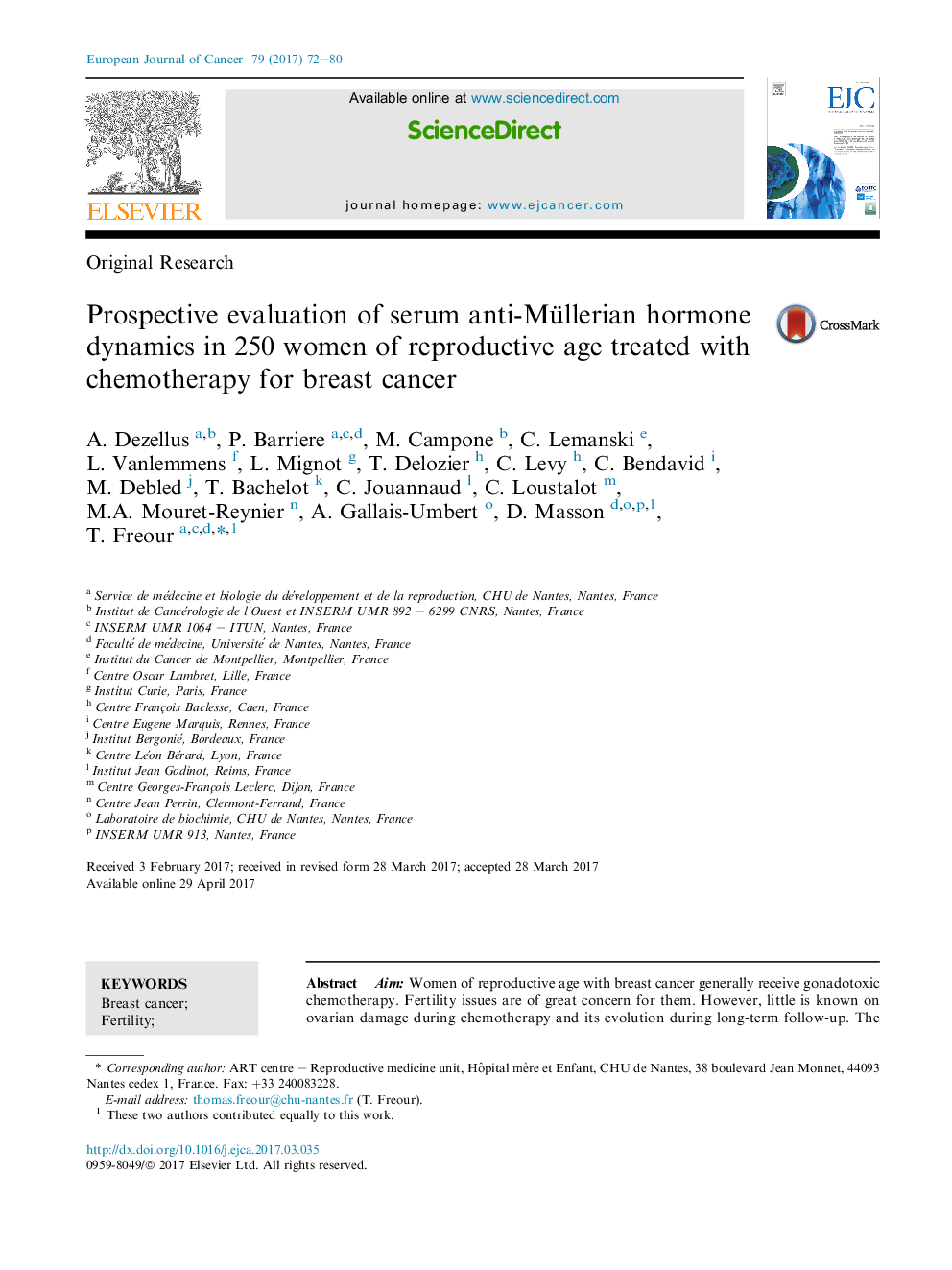| کد مقاله | کد نشریه | سال انتشار | مقاله انگلیسی | نسخه تمام متن |
|---|---|---|---|---|
| 5526636 | 1547053 | 2017 | 9 صفحه PDF | دانلود رایگان |
- Young women receiving chemotherapy for breast cancer show rapid ovarian reserve alteration.
- Partial anti-Müllerian hormone (AMH) increase was observed in some patients during the 24-month follow-up.
- AMH decrease was significantly associated with age and basal AMH level.
AimWomen of reproductive age with breast cancer generally receive gonadotoxic chemotherapy. Fertility issues are of great concern for them. However, little is known on ovarian damage during chemotherapy and its evolution during long-term follow-up. The aim of this study was to provide a detailed description of serum anti-Müllerian hormone (AMH) evolution during chemotherapy and 24-month follow-up.MethodsThis prospective cohort study was conducted in 250 patients, aged 18-39 years, diagnosed with breast cancer and treated with adjuvant/neoadjuvant chemotherapy. Each patient underwent blood AMH measurement at each chemotherapy cycle, and at 6, 12 and 24 months after chemotherapy. Menses occurrence was also recorded.ResultsMean basal AMH level was 4.19 ± 4.84 ng/mL, and was negatively correlated with age. Serum AMH level rapidly decreased in all patients after each chemotherapy cycle to undetectable levels in most of them, and slowly increased in 45% of the patients during the 24-month follow-up. AMH decrease was significantly associated with age and basal AMH level, but not with cyclophosphamide dose and tamoxifen use. The prevalence of chemotherapy-related amenorrhoea was 92.4% at the end of chemotherapy; women with amenorrhoea being significantly older and having lower basal AMH than women who resumed menses.ConclusionsOur study confirms rapid and deep ovarian reserve alteration in young women receiving chemotherapy for breast cancer, and shows moderate AMH recovery in some patients. Although AMH cannot alone predict fertility potential, these new data emphasise the need for post-treatment ovarian insufficiency follow-up, strongly support the use of fertility preservation strategies and may provide new tools for improved counselling.
Journal: European Journal of Cancer - Volume 79, July 2017, Pages 72-80
